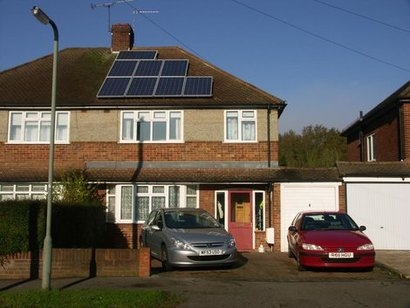
Over 60 percent of people say they want to install solar power yet the Government confirmed today it will end not only the Feed-In Tariff, as expected, but also the export tariff, which provides a payment to people putting clean energy on the networks (albeit at a level significantly below 2018 average wholesale prices).
The Government has ignored the 345 responses that were submitted to the Department for Business, Energy & Industrial Strategy (BEIS) with 91 percent of respondents disagreeing with the closure of the export tariff. The government similarly ignored the STA’s letter to Claire Perry in August now signed by over 350 organisations requesting the export tariff’s continuation.
“BEIS has taken this decision even before it sets out how it will overcome a really fundamental market failure that risks seeing new solar homes put power on the grid for free from next April” said Chris Hewett, Chief Executive of the Solar Trade Association (STA). “At a bare minimum, Government should retain the export tariff until an effective, alternative way to fairly remunerate solar power is implemented. Nobody is saving any money here because the export tariff is not a subsidy. Last month Energy Minister Claire Perry said that she would not allow a situation where solar generators would have to give away their power for free. We urgently need her to set out the detail behind plans for an export floor price as soon as possible to prevent the uncertainty that today’s announcement will create from damaging market confidence any further. The STA has proposed a number of viable options, so there is no justifiable reason for delay. We are also concerned that the government has given no indication of requirements for consumer standards and the MCS scheme.”
Whilst noting the concern expressed in many responses regarding the potential loss of the MCS quality assurance requirements with the end of the FIT, this was similarly ignored highlighting what some see as the Government's lack of due regard towards consumer standards and safety. Practices of mis-selling could become more prevalent given a policy gap, with a promise by the Government of a future route to market being available and no clarity on how this might work. Furthermore, the Government’s response suggests that the UK’s obligation with regards to Renewable Energy Directive II (which requires fair remuneration 'at market rates' for solar generators exporting to the grid) has not been fully considered.
The decision to end export payments for solar also attracted condemnation from environmental NGO Greenpeace:
“People putting solar panels on their roofs are doing their bit to save us all from a collapsing climate” said Dr Doug Parr, Chief Scientist for Greenpeace UK. “But instead of rewarding them, ministers want households to hand over their power surplus to the big energy companies, who can then sell it back to us. This, according to the government, is a ‘market-based solution’ - it looks more like a sophisticated rip-off. It penalises people who are trying to be part of the solution to reward the vested interests which have been part of the problem for decades. It's simply perverse. Solar prices have plummeted, and the solar industry are on a path to subsidy-free status. Ministers should be looking for ways to help this affordable technology expand instead of putting spanners in the works while signing blank cheques for the nuclear industry.”
For additional information:

